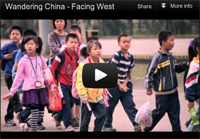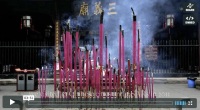S’pore ‘can be catalyst for India, China meet’
Temasek working on details to bring power elite of Asian giants together, says SM Goh
By Ravi Velloor, South Asia Bureau Chief
Source – Straits Times, published 20 March 2010

Prime Minister Manmohan Singh (second from left) hosted a lunch for Mr Goh yesterday. With the two leaders are Singapore Senior Minister of State (Foreign Affairs) Zainul Abideen Rasheed (second from right) and Senior Minister of State (Trade and Industry and Education) S. Iswaran. -- PHOTO: MFA
NEW DELHI: Singapore is looking to be the catalyst for a meeting that will assemble top businessmen and government leaders of India and China, Asia’s twin powerhouses.
‘Prime Minister Manmohan Singh thought it was a marvellous idea for India,’ Senior Minister Goh Chok Tong said yesterday after a lunch hosted in his honour by the Indian leader.
‘And looking at it from Singapore’s point of view, it is a marvellous advantage for Singapore to be hosting this.’
India and China share a fast-developing relationship that saw bilateral trade top US$41 billion (S$57 billion) last year. But while trade and investment ties are growing, their relationship has sometimes been marred by testy exchanges over their 3,600km undemarcated border.
Mr Goh, who is on a two-day visit to India, said the exact details of the conference were still being worked out by Temasek Holdings, which mooted the idea and will host the conference.
He has been invited to speak at the conference, which may be held sometime next year.
Temasek apparently wants the conference to be a venue where the power elite of both sides will sit down together. Singapore would provide the venue and sees itself in the role more of a catalyst than of an honest broker.
‘They have the idea of combining business networking with something bigger, an overarching framework. They want to attract political leaders and government leaders. So we need to provide something more intellectual, strategy-oriented and long-range,’ Mr Goh said.
China watchers such as Associate Professor Li Mingjiang at the S. Rajaratnam School of International Studies back the idea, noting that Singapore is in an ideal position to host the talks.
Many other countries in the region, said Prof Li, might have national interests that conflict with those of India or China. Some might be seen to be either pro-China or pro-India, while some East Asian nations might also want a strong India to counter what they see as a rising China.
‘Singapore is the only South-east Asian country that is in the right position to mediate between the two countries. It is geopolitically neutral,’ he said.
An Asian diplomat with experience in India and China said attempts had been made before to bring the two giants together, but on a smaller scale.
‘The fact is, there are entrenched bureaucracies on both sides that stand in the way,’ he said.
Mr Goh, who last visited India two years ago, is here at a time when government leaders are projecting the US$1.2 trillion economy to be within sight of double-digit growth.
The Senior Minister is recognised here as one of the earliest government leaders to see India’s potential, having spoken of sparking a ‘mild India fever in Singapore’ in January 1994. At the time, there was no shortage of India sceptics around the world.
The results of his call for an ‘India fever’ were not quite what he had expected, he said yesterday.
While several Singapore companies invested in India, investments the other way had grown much more rapidly.
For instance, India’s Tata Group now owns NatSteel, and last week, the Fortis health-care group bought a huge stake in Singapore’s Parkway Hospitals to expand into the region and China.
‘The real benefit of the call for an ‘India fever’ was really the development of a Singapore fever in India,’ he said. Bilateral trade hit S$22 billion last year despite the economic downturn, more than three times 2004 levels.
There are some 4,000 Indian companies in Singapore, the second largest foreign corporate contingent on the island.
Singapore was also the top destination for Indian foreign direct investment in the 2008/09 fiscal year, with more than US$5.5 billion invested.
Filed under: Economics, India, International Relations, Politics, Singapore Window










The Sharing Circle